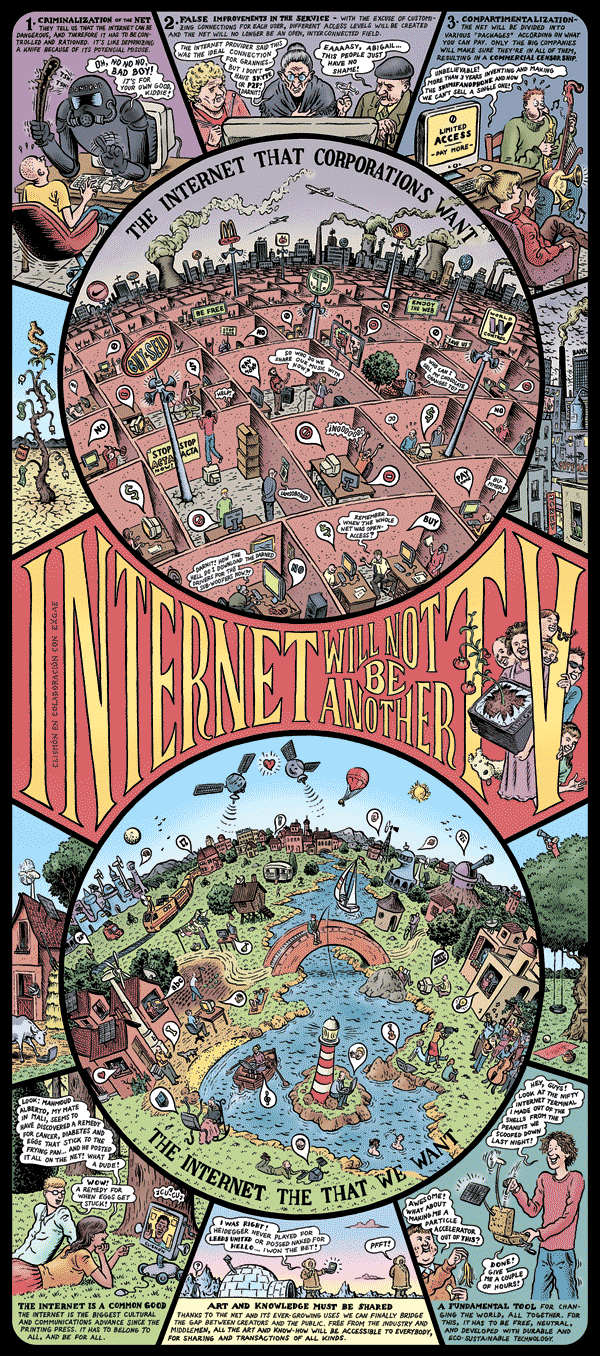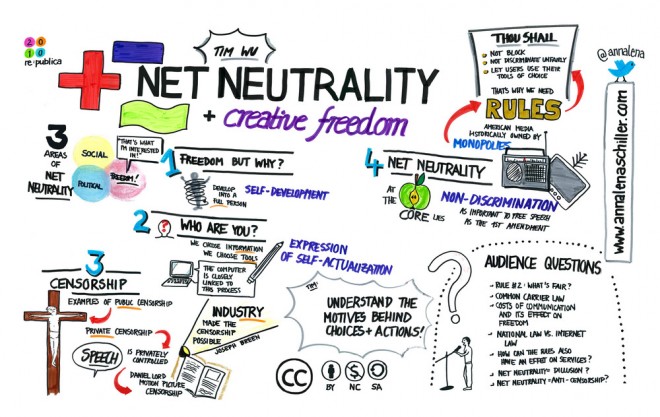Secure your place at the Digiday Media Buying Summit in Nashville, March 2-4
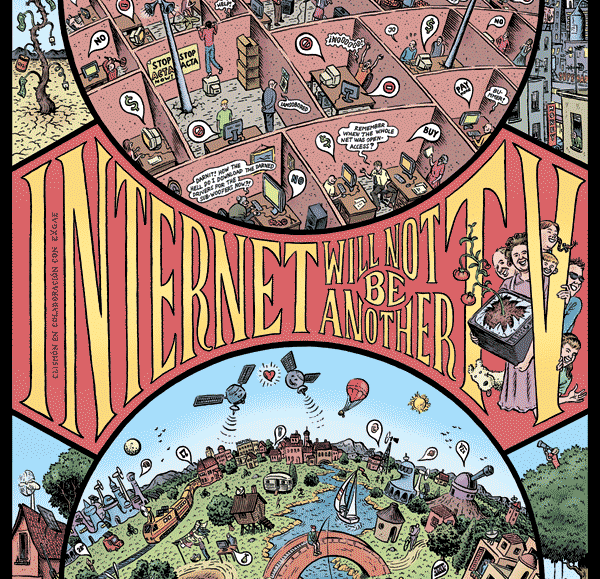
When a federal appeals court struck down on Tuesday an Federal Communications Committee ruling meant to prevent Internet service providers from prioritizing some website traffic over others, it was seen as a blow to the so-called “open Internet” and proponents of net neutrality.
The FCC put its net neutrality rules in place in 201o in order to ensure equal access to all types of content. But a federal court ruled Tuesday that the commission didn’t have the legal authority to enforce its own policy.
The threat to net neutrality has spurred grassroots efforts at whipping up awareness of the importance of keeping the Internet free of the type of restrictions that are possible without enshrining net neutrality as part of the law.
This graphic comes from Internet NO será otra TV (INTERNET WILL NOT BE ANOTHER TV) by artist Miguel Brieva. The drawing, evoking R. Crumb’s best work, is clearly pro-net-neutrality, contrasting the two potential outcomes of the issue — a dystopian police state at the top standing in stark contrast to a more idyllic world at the bottom, where “the Internet is a common good.”
This low-tech infographic was created by German data visualizer Anna Lena Schiller. Its stream-of-consciousness riff about net neutrality outlines how an open Internet fosters creative freedom.

Maybe you didn’t know that the idea of net neutrality was popularized by Columbia Law School professor Tim Wu, or that some large brands like Microsoft, Ebay and Amazon are actually in favor of it. Onlineschools.org is here to help. The organization also deserves bonus points for citing sources at the bottom of the graphic and explaining rationally why someone might be opposed net neutrality.
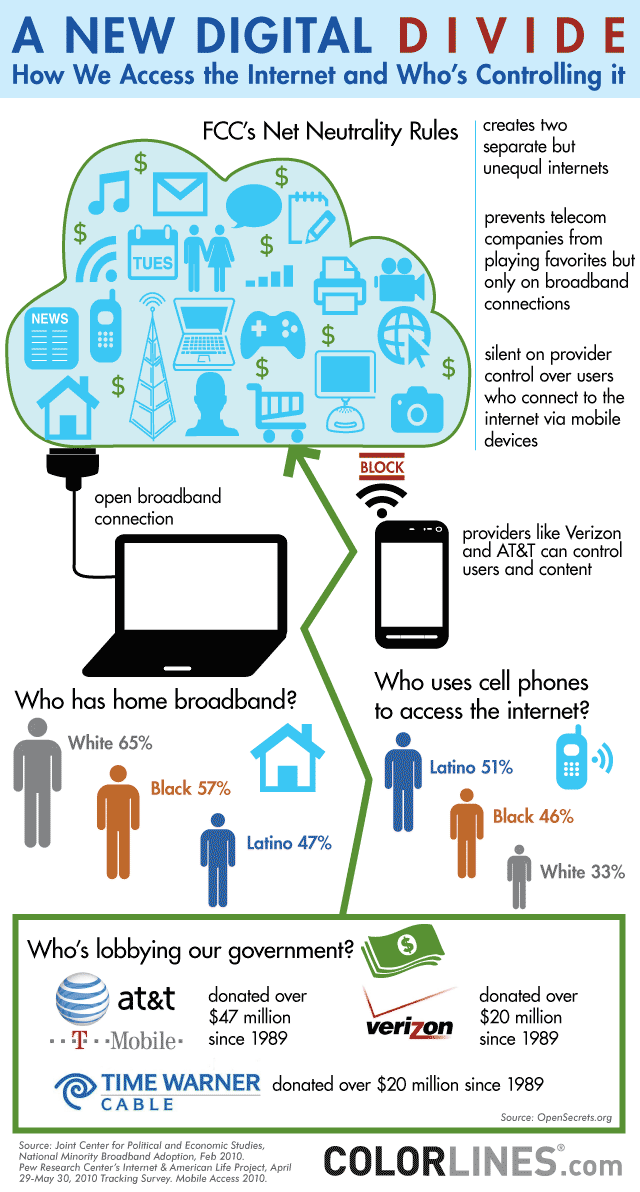
This infographic from Colorlines, a magazine that covers issues pertaining to race and culture, delves into how mobile and desktop Internet audiences differ — and how neutrality disproportionately affects different communities.
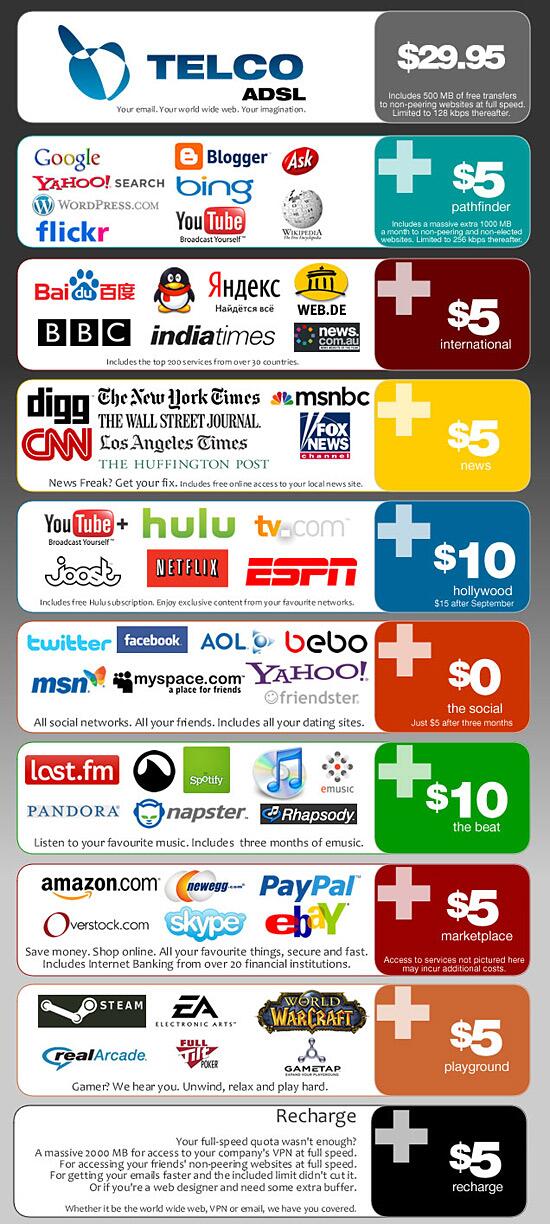
This infographic is actually from 2009. It was created by a redditor named quink who wanted to show sardonically what a cost structure might look like if we happen to lose net neutrality.
More in Media

WTF is Markdown for AI agents?
AI systems prefer structured formats or APIs to ingest and surface content more efficiently. And “markdown” has quickly become the common language used by AI systems and agents.

From feeds to streets: How mega influencer Haley Baylee is diversifying beyond platform algorithms
Kalil is partnering with LinkNYC to take her social media content into the real world and the streets of NYC.

‘A brand trip’: How the creator economy showed up at this year’s Super Bowl
Super Bowl 2026 had more on-the-ground brand activations and creator participation than ever, showcasing how it’s become a massive IRL moment for the creator economy.
